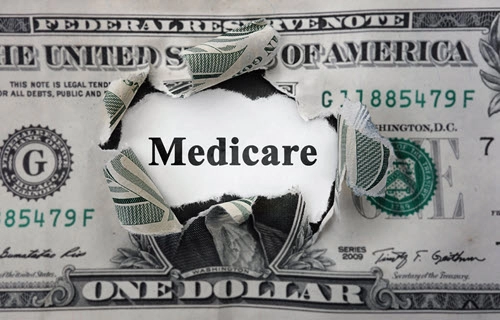Home Health & Hospice Week
CMS Is Discriminating Against Long-Term Home Care Patients With PDGM, Bene Advocacy Group Claims
The Patient Driven Groupings Model is unfairly pushing the Medicare home health benefit to be more and more short term, says a beneficiary advocacy organization. PDGM includes a “sharp payment decline to agencies after 30 days of home health care,” the Center for Medicare Advocacy says on its website. “After the first 60 days of home health care, payments decline even further.” The drop-off is worst for the Medication, Management, Teaching and Assessment — Surgical Aftercare clinical group, under which PDGM payment decreases 40 percent from the first 30-day period to the second, CMA shows. The “discriminatory” new payment model, aggressive audits, quality measure structure, and more “cumulatively limit Medicare home health care to only a short-term, post-acute care benefit,” the group charges. “Beneficiaries who legally qualify for longer-term coverage are unable to find agencies to provide services.” “PDGM is a significant factor in reducing, and often eliminating, access to ongoing home health care for beneficiaries with longer-term and chronic conditions” like diabetes, stroke, paralysis, multiple sclerosis, Parkinson’s, ALS, heart disease, pulmonary disorders and more, CMA maintains. “CMS should develop payments, policies and practices that support home health care for all individuals who qualify for coverage under the law,” the group urges. More data and the group’s call to get in contact about premature discharges or inabilities in obtaining home health services are at https://medicareadvocacy.org/cma-alert-march-4-2021.
Home Health & Hospice Week
- COVID-19 Vaccination:
Learn Lessons From VNSNY’s COVID Vaccination Practice
Learn Lessons From VNSNY’s COVID Vaccination Practice About 50 percent of the agency’s aides have [...] - Strategy:
Heed These 6 Tips To Boost Your Vaccination Efforts
Help workers overcome technology, language barriers. You may want to take a page from the [...] - Legislation:
$1.9 Trillion COVID-19 Stimulus Package Passes With Pros And Cons
Rural providers will get a boost, but suspension of sequestration cuts ends this month. The [...] - Survey & Certification:
HH, Hospice Access Problems To SNFs May Be Eased By Liberalized Visitor Guidance
Indoor visitation should resume in most cases, CMS urges. Get ready for more referral-impacting changes [...] - Industry Notes:
HHS Will Spend $250 Million To Encourage COVID-19 Safety, Vaccination For Underserved Population
Health literacy grants are available. In addition to the funding coming from the newly passed [...] - Industry Notes:
Catch This CMS Overview Of The VBID Hospice Carve-In For 2022
Find out about the 2022 Payment Design of the Hospice Benefit Component of the Medicare [...] - Industry Notes:
CMS Is Discriminating Against Long-Term Home Care Patients With PDGM, Bene Advocacy Group Claims
The Patient Driven Groupings Model is unfairly pushing the Medicare home health benefit to be [...] - Industry Notes:
April Start Date Scuttled For SIP Model
Medicare’s Seriously Ill Population program under the Primary Care First Model is on ice. SIP [...] - Industry Notes:
Largest U.S. PACE Provider Goes Public, Raising $350 Million
The nation’s largest PACE provider has made its Initial Public Offering. Denver-based InnovAge sold 16.7 [...] - Industry Notes:
New HH Advocacy Group Includes Amazon Health
A new home care advocacy group is on the scene, and it includes one well-known [...] - Industry Notes:
Accountant Arrested In Relation To Client's Fraud Scheme In Texas
A recent $134 million fraud case in Houston serves as a stark reminder that it’s [...]

